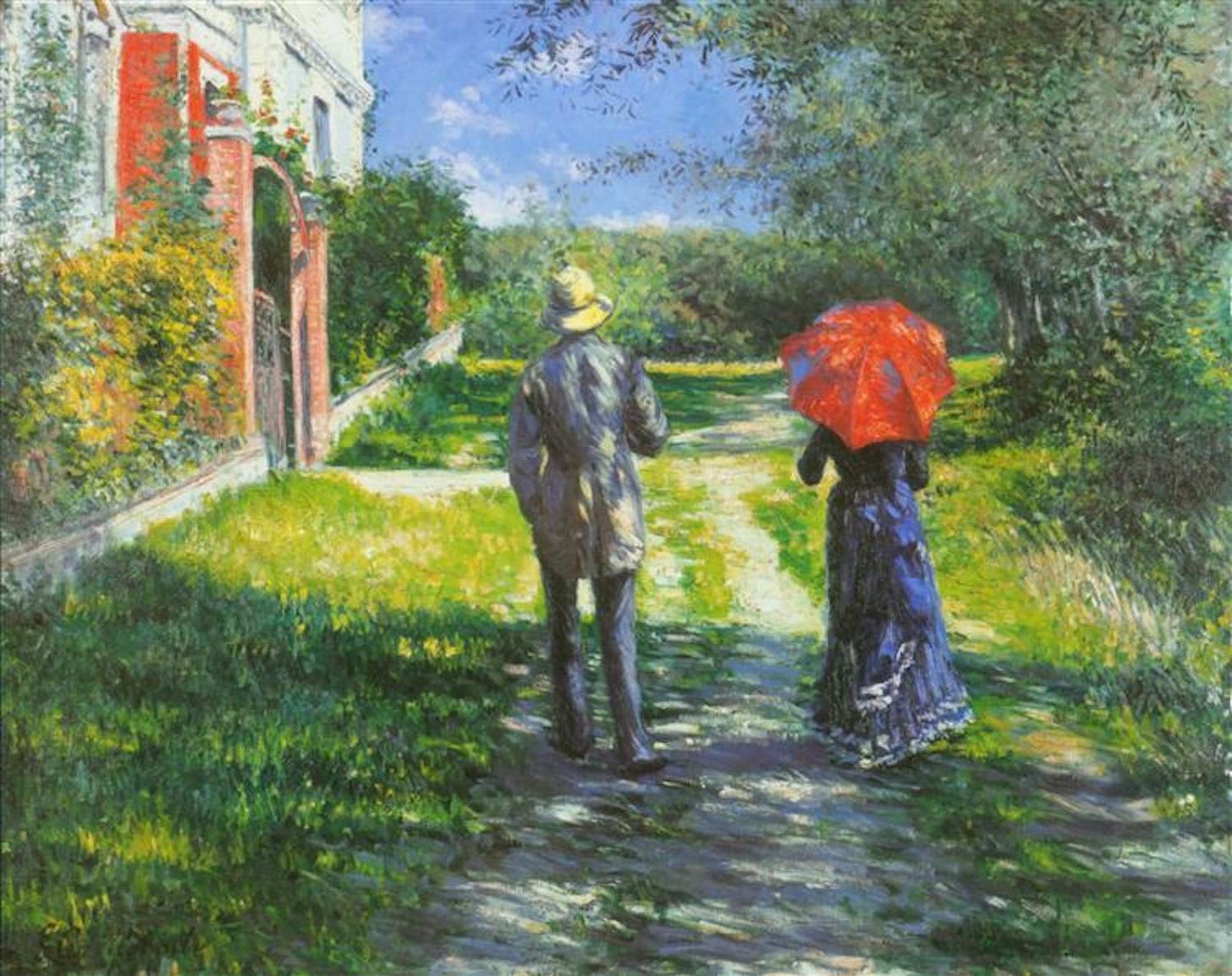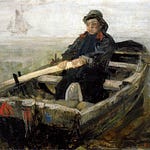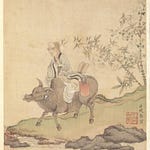Welcome back to our series Peace is the Project, exploring how one finds tranquility in daily life. Thus far, we’ve discussed On Learning to Relax, The Meaning of Anxiety, and The Art of Being Where You Are. Today we’re going to attempt to explore how to think about the path to tranquility.
Today’s episode is available to all subscribers. If you’d like full access to our daily meditations on the art of living, along with The Wisdom School (a private podcast by the Perennial Leader Project), consider becoming a member today.
The late spiritual teacher Ram Dass told a story of when he asked his guru about the path to wisdom. His guru responded, “Feed people.” Ram Dass, not entirely satisfied with his answer, rephrased the question to “How does one become enlightened?” To this question, his guru said, “Serve people.”
What if the path to peace is thinking less about ourselves and our outcomes? Let us attempt to answer this question in three ways.
1. The Art of Unselfing
The British novelist and philosopher Iris Murdoch coined the term “unselfing.” According to Murdoch, “The self, the place where we live, is a place of illusion. Goodness is connected with the attempt to see the unself, to see, and to respond to the real world in the light of a virtuous consciousness.”
In his book, The Socrates Express, Eric Weiner (a previous podcast guest) describes a moment of unselfing from Murdoch,
She was looking out her window, feeling anxious and resentful due to a perceived slight earlier in the day, when she spotted a hovering bird. ‘In a moment everything is altered,’ says Murdoch. ‘The brooding self with its hurt vanity has disappeared. There is nothing now but this bird. And when I return to thinking of the other matter it seems less important.’
“All inattention is a form of selfishness,” explains Weiner. We’ve decided that whatever is happening in our heads is more interesting and more important than what is happening in the rest of the universe.
2. On Going Nowhere
The notion that we are embarking on a journey to nowhere and one that will never be complete. At first, it might sound uninspiring or a little strange. But put in the context of projects with no end, it makes sense: being a virtuous person, a good parent, or a loving friend. These are goals that have no completion dates — they are infinite paths (or perennial habits).
Ram Dass observed,
Early in the journey, you wonder how long the journey will take and whether you will make it in this lifetime. Later you will see that where you are going is here, and you will arrive now… so you stop asking.
The whole point is simply to walk the path without worrying about the outcome. Krishna teaches this lesson to Arjuna in the classic spiritual text, The Bhagavad Gita. The translator Stephen Mitchell writes, “You have a right to your actions, but never to your actions’ fruits. Act for the action’s sake.”
According to Mitchell,
Any genuine path will, with sincere practice, result in a gradual, deepening surrender of selfishness into the ultimate reality that the Gita calls the Self. Just as our primordial craving leads to all the manifold forms of our misery, letting go of our ideas about reality and our desires for particular results leads to freedom.
But this is often far easier said (and written) than done. Getting over our desires and aversions of how we think things ought to be is a critical task. “As long as we have specific desires of how things should be,” stressed Ram Dass, “we cannot see things as they are.”
3. Peace is Possible
Before you embark on any path, you must first believe it’s possible. To the question posed in our first meditation on learning to relax, “What stands in the way of tranquility?” The theologian and psychologist Anthony de Mello said that we are the obstacles to finding peace.
All mystics are unanimous on one thing: that all is well, stressed de Mello. Though everything is a mess, all is well. Strange paradox, to be sure. But, tragically, most people never get to see that all is well because they are asleep.
Thought Experiment:
Do you believe that peace is possible?
What stands in the way of peace at this very moment?
We all need reminders of what is possible. Even the Roman Emperor Marcus Aurelius needed these types of reminders. He wrote this to himself, “Do not think that what is hard for you to master is humanly impossible; and if it is humanly possible, consider it to be within your reach.”
Although peace is not a goal or destination — it is a direction. We are wise to remind ourselves (and others) that peace is our port.
Final Thoughts
In the documentary, Becoming Nobody, Ram Dass explains that we all affect the world every moment, whether we mean to or not. Our actions and states of mind matter because we’re so deeply interconnected with one another.
Ram Dass advised,
Don’t treat yourself so gingerly; you can let go of stuff. Sometimes it takes three breaths instead of two to do it, but you can do it. Be a little tougher, and don’t cling to stuff. People go around carrying everybody’s stuff all of the time. I just pick it up and put it down. Pick it up and put it down. That doesn’t mean I’m not compassionate; it doesn’t mean I don’t love people. But holding onto people’s suffering is not compassionate… for them or for you.
Many of us worry about the situation of the world. As individuals, we feel helpless at times to the problems of the world. But paradoxically, tranquility is what is needed amidst the chaos.
The late Zen master Thich Nhat Hanh explained in Being Peace,
When the crowded Vietnamese refugee boats met with storms or pirates, if everyone panicked, all would be lost. But if even one person on the boat remained calm and centered, it was enough. It showed the way for everyone to survive. …
Our world is something like a small boat. Compared with the cosmos, our planet is a very small boat. We are about to panic because our situation is no better than the situation of the small boat in the sea. … We need people who can sit still and be able to smile, who can walk peacefully.
Although no one can walk the path to tranquility for us. We can walk alongside one another and remind each other that not only is peace the project — it is possible.
—
Thank you for reading; I hope you found something useful.
Until next time, be wise and be well,
P.S. As always, feel free to comment, ask questions, or make suggestions!


















The Path to Tranquility